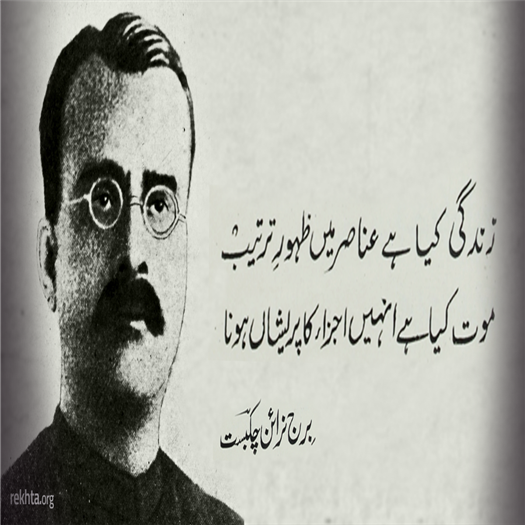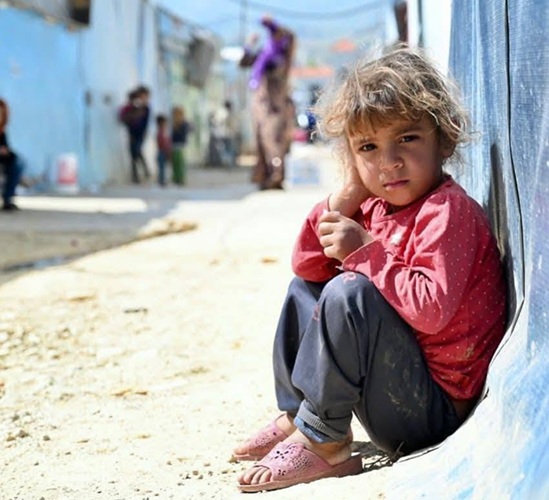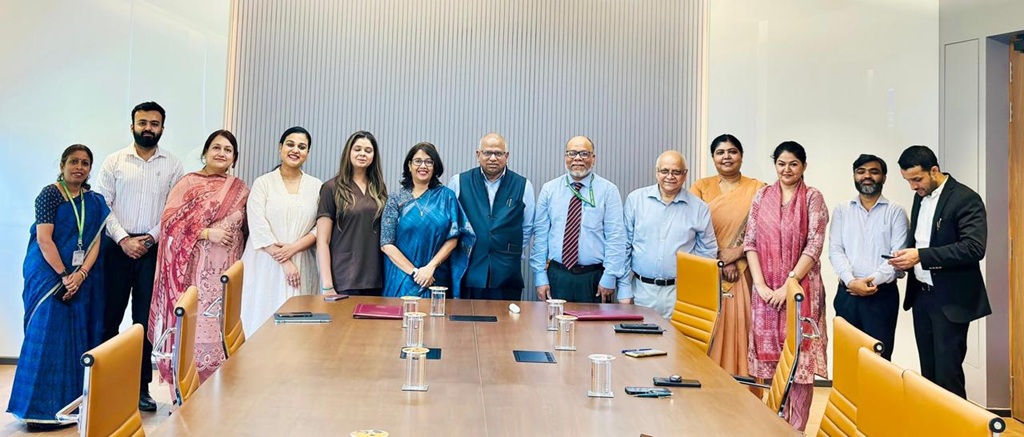VIKAS DATTA
Nearly nine decades after his passing away, his work returned to public consciousness with his famous couplet – “Zindagi kya hai, anasir mein zuhur-e-tartib/Maut kya hai, inhi ajza ka pareshan hona” recited in the start of offbeat, but hard-hitting Bollywood film “Masaan” (2015). However, Pandit Braj Narain Chakbast was not only an accomplished Urdu poet, but also earned the distinction of devising its first-ever meme.
As the story goes, Chakbast, a lawyer by profession, was once sent a hemstich, or half line of verse, by a ‘khafifa’ (small cause) court official to complete. This line was “Rag-e-gul se bulbul ke par bandhte hai” and Chakbast responded, wittily but rather cruelly too, to make it “Khafifa adalat mein ullu ke patthe/Rag-e-gul se bulbul ke par bandhte hai.”
As per literary scholar Saraswati Saran ‘Kaif’, this couplet spread widely across the country in the 1920s and 1930s, though few knew who its author was, with users freely changing the first line to “Suna hai ki Meerut mein ullu ke patthe..” or “Aligarh mein ullu ke patthe..” or as needed for the put downs of specific cities or regions.
That, however, is far from the high point of the poetry of Chakbast, who, in his comparatively short life (1882-1926), brought together – and reflected – in his poetry four major strands – the inclusive nature of Urdu literary tradition, the ‘Lakhnavi’ culture he grew up in, his own Kashmiri Brahmin heritage, and the socio-political millieu of his time. While he is usually deemed a poet of patriotic themes, particularly in the form of nazms, his canvas was much larger and contained everything from religion, nature, and humanity. And like many other noted nazm writers, he did not forsake the basic poetic form of the ghazal.
There was one distinguishing feature in his ‘ghazal-goi’ though – unlike many of his contemporaries, Chakbast’s ghazals eschew the common staples of wine, women, and song, in favour of lofty, philosophical themes – as the ‘sher’ – from one of his earliest ghazals – used in “Masaan” shows.
The reason is in his family background. Chakbast was born in Faizabad on January 19, 1882, in fairly affluent circumstances, with his father, Pandit Udit Narain Chakbast being a Deputy Collector – the highest administrative posts Indians could rise to in those days. But his father, who also wrote poetry under the ‘takhallus’ “Yaqeen” – though just a couple of dozen-odd couplets survive – was rather too fond of high living and dissipated the family wealth and properties before his own untimely death in 1887 at the age of around 44.
Though his maternal uncle helped raise him and his siblings, Chakbast took the lessons of his comfortable-turned-straitened early life to heart. As per his family and his friends, Chakbast, despite being convivial and joining the society of the Lucknow gentry fond of the good life as well as the British, never touched alcohol, visited a courtesan, or gambled. He generally avoided them in his poetry too.
Chakbast is said to have started to compose at the age of nine, though his first recorded verse dates from he was 12 years old – a nazm titled “Hubb-e-Qaumi” delivered at a session at the Social Conference of Kashmir Pandits in 1894. As he continued writing, community elder and litterateur Pandit Bishan Nath Dar, with whom Chakbast was well-acquainted, facilitated his craft by recommending his own ustad, Marhamat-ud-DauIa “Hakeem”, the son of the legendary Muzaffar Ali Khan “Aseer Lakhnavi”, for poetic guidance.
Under “Hakeem” and later, his younger brother, Afzal-ud-Daula “Afzal”, Chakbast, who was inspired by Mir, Ghalib, “Atish Lakhnavi”, and ‘marsiya’ writer Mir Anis, grew so proficient that the latter soon started returning his verse unchanged, saying there was nothing in it to correct or enhance.
Chakbast was also embroiled in a major literary controversy in 1905. Having prepared a new edition of the “Gulzar-e-Naseem” of early 19th century Lakhnavi poet Daya Shankar Kaul “Naseem”, he extolled him extensively. However, Maulana Abdul Halim “Sharar”, the esteemed historian of Lakhavi culture, hit back, questioning Naseem’s authorship of masnavi “Gul Bakawali”. A major literary skirmish, waged mainly through newspaper articles and letters, ensued for nearly an year with wide support to Chakbast, mainly from Munshi Sajjad Hussain and his satirical political weekly “Avadh Punch” but also many other in Lucknow circles, including a poet whose work Chakbast had criticised. There were others ranged against Chakbast, before Sharar, who was a fair-minded man, admitted that he was mistaken.
By 1907, Chakbast had emerged as poet of note, and completing his LLB, began his legal career.
One of his best-known works dates from his early period, and in nazm “Ramayan ka Ek Scene”, he uses the rhythmic cadence of Urdu to depict the beginning of Ram’s exile:
“Rukhsat huya vo baap se le kar khuda ka naam/Rah-e-vafa ki manzil-e-avval hui tamaam”, it begins, and goes on to scale further heights with couplets like: “Jumbish hui labon ko bhari ek sard aah/Li gosha-ha-e-chashm se ashkon ne rukh ki raah..” and more, before ending: “Us ka karam sharik agar hai to gham nahi/Daman-e-dasht daman-e-madar se kam nahi.”
However, Chakbast wrote on other Hindu motifs, including the cow, he, born and bred in the communal amity and acculturation of Lucknow, was no religious supremacist. He had already irked his community’s orthodox by supporting widow remarriage and was a votary of more freedom for women and modern education. As he wrote on the inauguration of the Ganga Prasad Library in Lucknow: “Daulat-e-ilm Iutegi isi dar se din raat/Ham ne sochi hai yahi nam pe uske khairat/Dair se aaye barahman (Hindus) ki haram se sadat (Muslims)/Sab yahan payenge sarmaya-e-taskin-e-hayat.”
And when it came to religion, Chakbast closely resembled his near contemporary Syed Akbar Hussain “Akbar Allahabadi”. Take him on outward religious trappings: “Dil surat-e-aina jo raushan nahin hota/Zinhar (sacred thread) pahanne se barahman nahin hota” or rituals: “Jinke amal mein mazhab ki latafat nahin khaak/Unke kadmon se na yeh pak havan ho napak.”
He freely railed against blind faith and obscurantism: “Haq parasti ki jo main ne but parasti chhor kar/Barahman kahne lage ilhad ka bani (heretic) mujhe” or “Hamare aur zahidon ke mazhab men farq agar hai to is qadar hai/Kahenge ham jisko paas-e-insan (love of humans) wo usko khauf-e-khuda kahenge” or “Aashna ho kan kya insan ki faryad se/Shaikh ko fursat nahin milti khuda ki yad se.”
And like Akbar’s “Har zarra chamakta hain anwar-e-illahi se..”, Chakbast wrote: “Ain kasrat men ye wahdat ka sabak Ved mein hai/Ek hi nurhai jo zarra-o-khurshed men hai (the same light can be observed in a grain of sand as the Sun).”
But, his poetic oeuvre, though limited, is profound in its depiction of the human condition: “Agar dard-e-mohabbat se na insaan aashna hota/Na kuch marne ka gham hota na jeene ka mazaa hota.”
And, as he said: “Is ko na-qadri-e-aalam ka sila kahte hain/Mar chuke ham to zamaane ne bahut yaad kiya.” Do we?






0 Comments